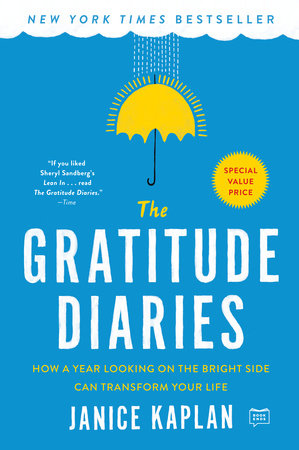READERS GUIDE
1. In the survey that launched the book, the author found that more than 90 percent of people think gratitude makes you happier and gives you a more fulfilled life— but less than half regularly express gratitude. What do you think gets in the way of ourexpressing gratitude?
2. Some psychologists believe that we’re wired to focus on the negative rather than the positive. What are some techniques the author used to overcome that?
3. The author started her year by being more grateful to her husband. Why do you think their relationship changed so much?
4. It turns out that people are less likely to express gratitude at work than anyplace else. Do you think you would work harder if you were more appreciated at work?
5. The book has some very convincing research on how gratitude affects health— saying it lowers blood pressure, decreases stress, helps you sleep better, and decreases inflammation. Were you surprised that an emotion can have such a powerful effect on the body?
6. The author says that gratitude gives you control— because instead of waiting for events to make you happy, you can take any event and find a reason to be grateful. Can you think of a time you’ve turned a difficult experience into a good one?
7. Gratitude should never be a chore. If you don’t want to keep a gratitude journal, what are other ways you can bring gratitude into your life?

